As a homeowner, you're likely familiar with the constant vigilance required to keep your home in top shape. One crucial aspect of this is managing water damage, a task where the humble sump pump plays a starring role.
This unsung hero, tucked away in our basements, works tirelessly to prevent water accumulation and potential flooding. But how much do we know about these devices?
In this article, we'll delve into the world of sump pumps, exploring their function, different types, and how they operate.
We'll also discuss how long do sump pumps last, signs of failure, and the importance of regular maintenance. Understanding these elements can be the difference between a dry, safe basement and a costly, water-damaged disaster.
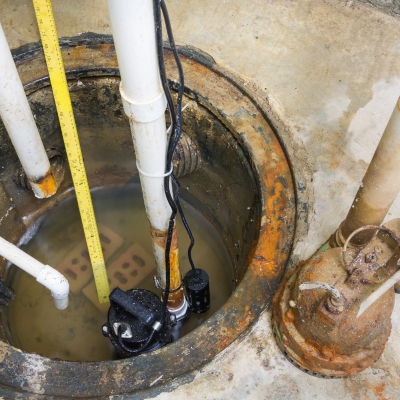
A sump pump is a specialized device designed to combat the problem of water accumulation in basements. Its primary function is to remove water that has collected in a sump basin, a special pit usually found in the lower parts of homes and buildings.
The sump pump serves as a proactive measure for water removal, playing a crucial role in flooding prevention. By doing so, it safeguards your property from potential water damage, which can be both costly and detrimental to the structural integrity of your building.
In essence, the sump pump is your first line of defense against basement flooding.
The operation of a sump pump is relatively straightforward. It's activated by a float, similar to the one in your toilet tank. When the water level in the sump basin rises to a set level, the float triggers the pump to start.
The sump pump then moves the water away from your property through a network of pipes. This discharge pipe takes water from the pit and deposits it outside, ideally in a place where it can drain safely away without rushing back to the foundation of your home.
It's a simple yet effective mechanism that ensures your basement remains dry and safe from potential water damage.
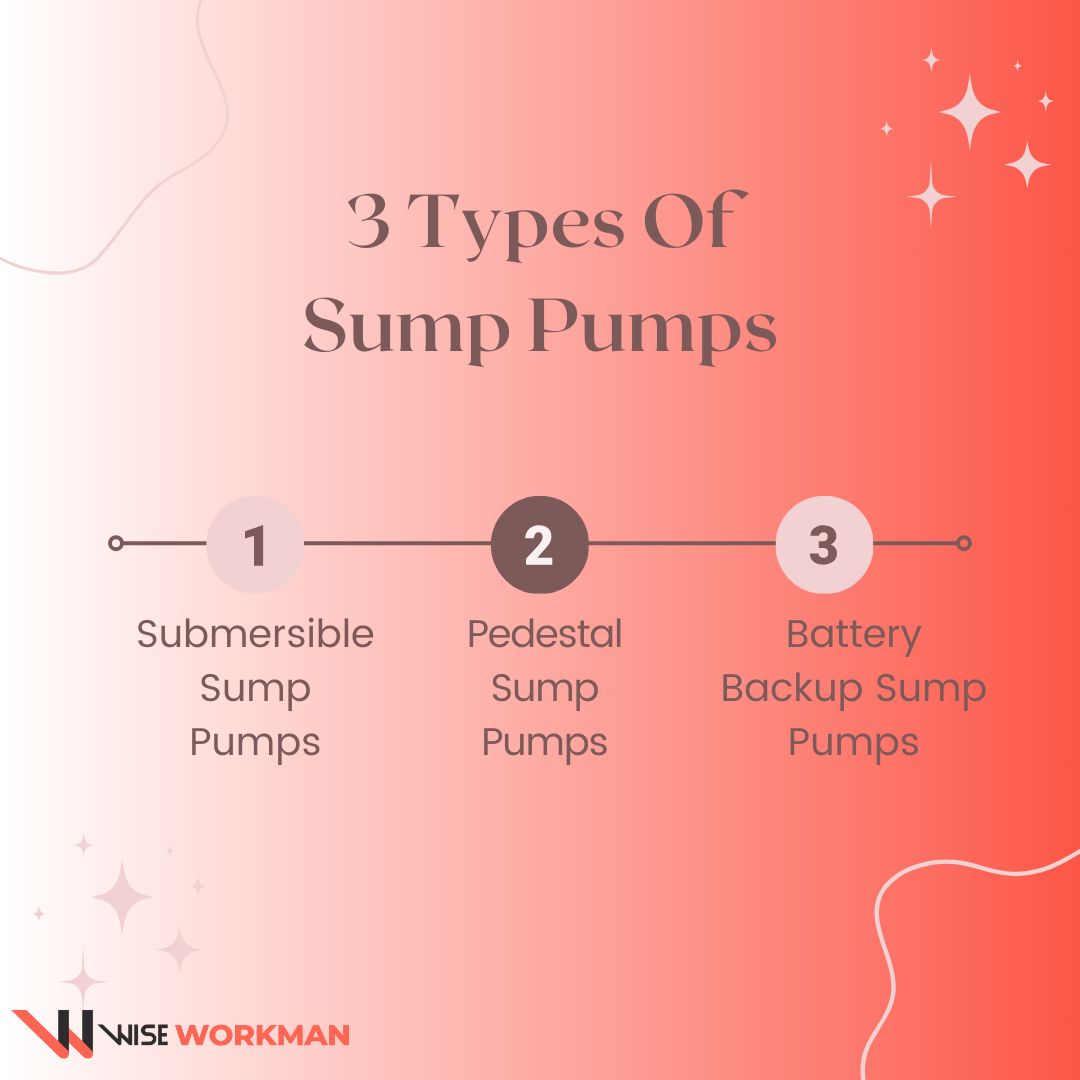
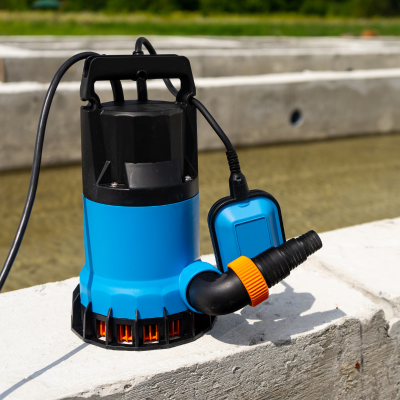
Submersible sump pumps are designed to operate underwater in your sump basin. These pumps are sealed to prevent electrical short circuits while submerged, making them a safe and efficient choice for water removal.
One of the key features of submersible sump pumps is their quiet operation, as the water around the pump muffles the noise. Additionally, they tend to have a longer lifespan due to their ability to handle heat more effectively than their counterparts.
When it comes to flooding prevention, submersible sump pumps are a reliable option, efficiently removing water from your basement and keeping your property dry.
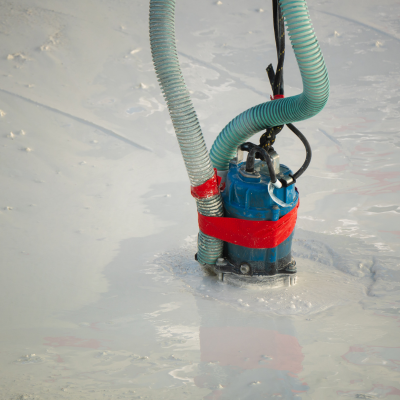
Pedestal sump pumps, on the other hand, are not designed to be submerged in water. Instead, they feature a motor that is mounted on a shaft and positioned above the sump basin, while the pump is located at the base of the pedestal in the water.
This design allows for easier maintenance and repair, as the motor is readily accessible. Pedestal sump pumps are generally less expensive than submersible pumps and can be a suitable choice for smaller basements or for homes where flooding is less frequent.
However, they tend to be noisier and less powerful than submersible pumps.
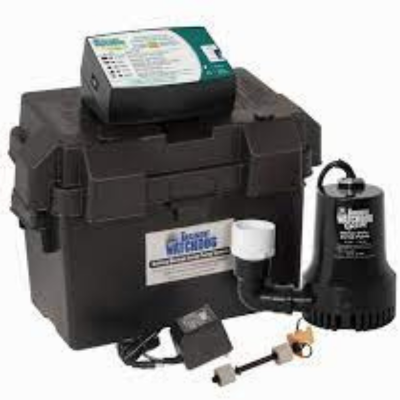
Battery backup sump pumps provide an additional layer of protection against water damage. These pumps kick into action when the power goes out, a common occurrence during severe storms when you need your sump pump the most.
They can also supplement your primary pump if it's unable to keep up with the incoming water. Battery backup sump pumps are an excellent investment for any homeowner, providing peace of mind knowing that your basement is protected from flooding, even in the event of a power outage.
| Aspect | Lifespan Range |
| Average Lifespan of a Sump Pump | 7 to 10 years |
| Submersible Pumps | 5 to 15 years |
| Pedestal Pumps | 25 years or more |
| Battery Back-up Pumps | 5 to 7 hours of continuous and 1 to 3 days of non-continuous pumping |
The average lifespan of a sump pump is typically between 7 to 10 years, but this can vary depending on several factors. It's important to note that this is a general figure and not specific to any particular brand or model of pump.
Some Submersible pumps, for instance, can last anywhere from 5 to 15 years, while Pedestal pumps may outlive them by 25 years or more.
However, these figures are not set in stone. The durability and longevity of your sump pump can be influenced by how well it's maintained, how often it's used, and the quality of its installation, among other things.
Several factors can influence the lifespan of your sump pump. One of the most significant is maintenance and repairs. Regular upkeep can extend the life of your pump, while neglect can lead to premature failure.
The amount of usage also plays a role. A pump that is frequently activated due to a high water table or heavy rainfall will wear out faster than one that only operates occasionally. The quality of installation is another crucial factor.
A poorly installed pump may not function efficiently, leading to a shorter lifespan. Other factors include the brand and size of the pump. High-quality pumps from reputable brands tend to last longer, and the right size pump for your specific needs will operate more efficiently, potentially extending its lifespan.
Recognizing the signs of sump pump failure can save you from a potential disaster.
If your sump pump fails, don't panic. The first step is to check the power source. Ensure the pump is plugged in and the circuit breaker hasn't tripped. If the power source isn't the issue, check for any visible blockages or damage.
If you can't identify the problem, it's best to call a professional. They can diagnose the issue and recommend whether repair or replacement is the best course of action. In the meantime, you may need to manually remove water from the sump basin to prevent overflow.
Remember, regular maintenance can help prevent many common sump pump issues, so it's worth investing time in upkeep to avoid potential problems.
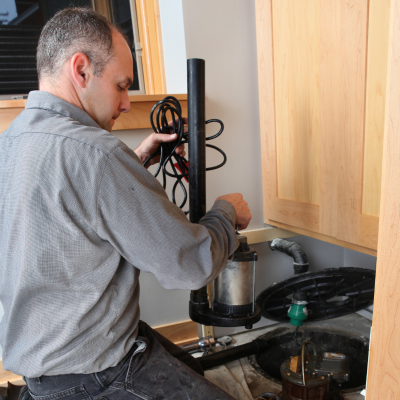
Maintaining your sump pump is crucial to ensure its longevity and optimal performance. Regular maintenance can help prevent common issues such as blockages, corrosion, and mechanical failures, which can lead to costly repairs or replacements.
Moreover, a well-maintained sump pump is more efficient at preventing basement flooding and protecting your property from potential water damage.
Therefore, understanding the importance of sump pump maintenance is essential for every homeowner.
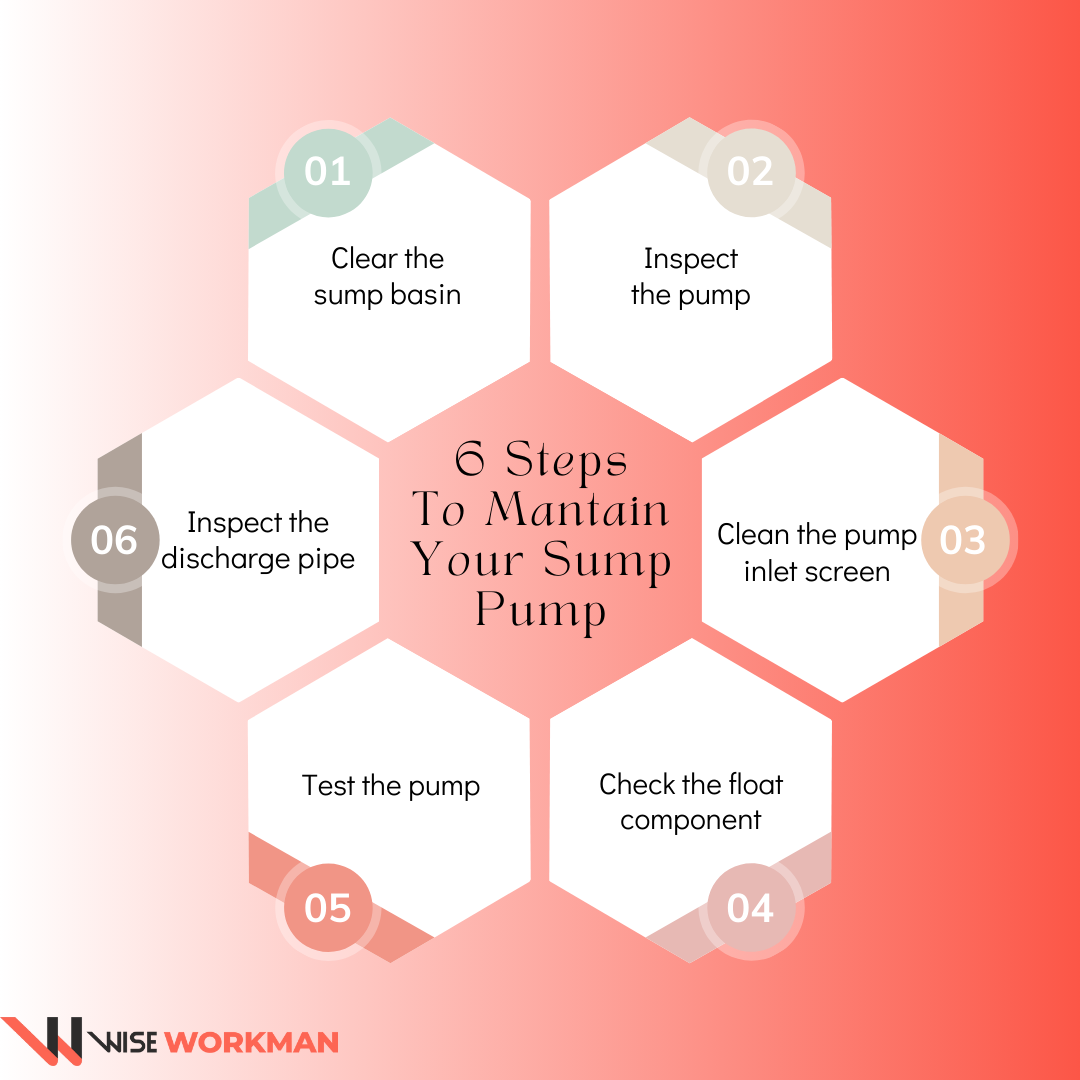
Maintaining your sump pump doesn't have to be a daunting task. Here's a simple step-by-step guide:
Remember, it's always a good idea to consult with a professional if you're unsure about any aspect of sump pump maintenance.
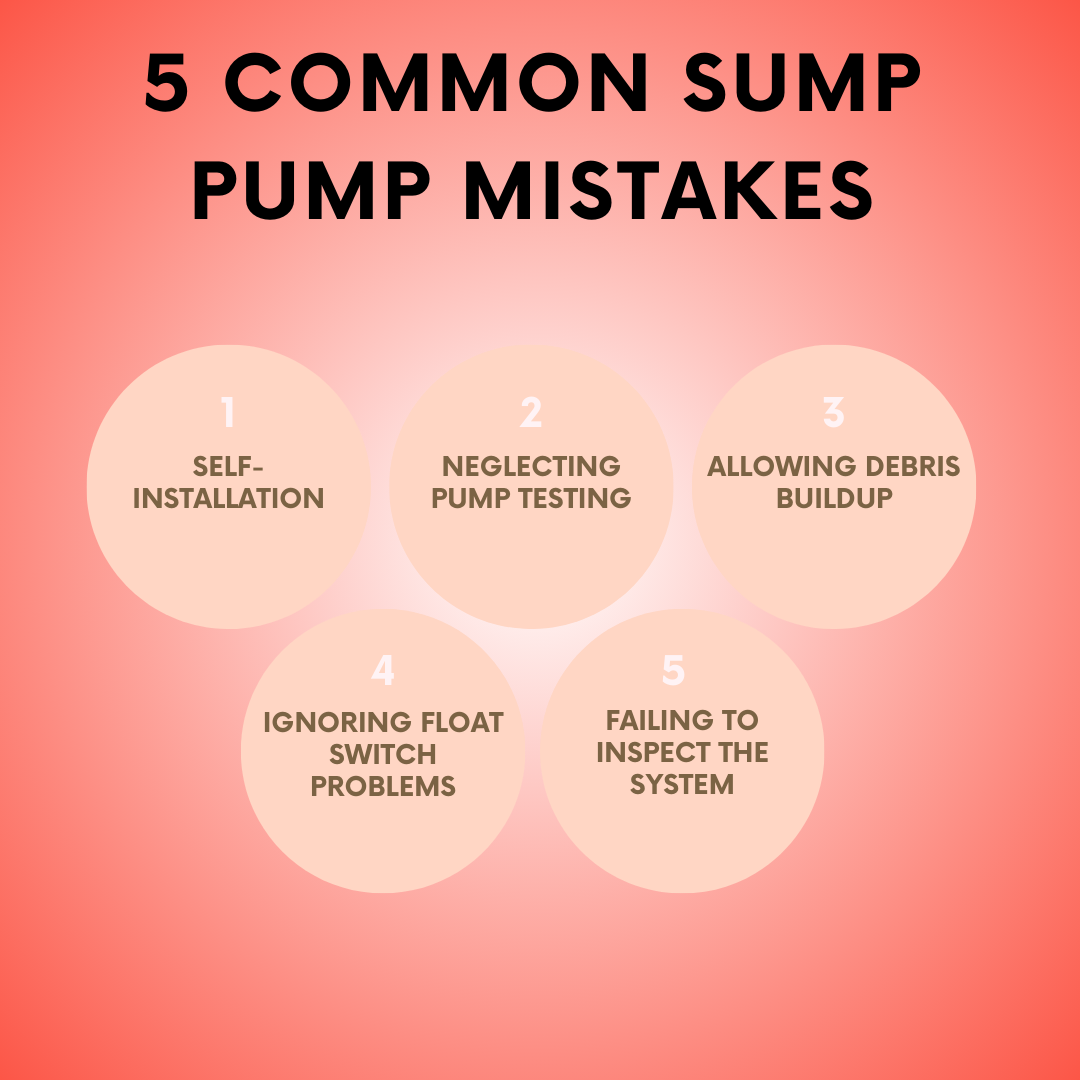
While maintaining your sump pump is crucial, it's also important to avoid common mistakes that could potentially harm your pump. These include:
Yes, sump pumps can be used for outdoor flooding, especially in areas prone to water accumulation like yards or patios. However, it's important to ensure the pump is suitable for outdoor use and can handle the volume of water.
The average lifespan of a sump pump is between 7 to 10 years. However, this can vary depending on the usage and maintenance. Regular inspections can help determine when it's time for a replacement.
While it's possible to install a sump pump yourself, it's generally recommended to hire a professional. Improper installation can lead to inefficiencies and potential damage.
If a power outage occurs, a sump pump without a battery backup will stop working. That's why it's recommended to have a battery backup sump pump that can operate independently of the main power supply.
Regular testing is the best way to ensure your sump pump is working correctly. This can be done by pouring a bucket of water into the sump pit and observing if the pump activates and drains the water quickly.
In summary, sump pumps play a vital role in protecting our homes from water damage and flooding. Understanding what a sump pump is, how it works, and the different types available can help you make an informed decision when it comes to choosing the right one for your needs.
It's also crucial to be aware of the average lifespan of sump pumps and the factors that can affect them, as well as the signs of sump pump failure.
Regular maintenance is key to ensuring the longevity and optimal performance of your sump pump and avoiding common maintenance mistakes can save you from potential headaches down the line.
Armed with this knowledge, you can ensure that your sump pump serves you well for many years to come.